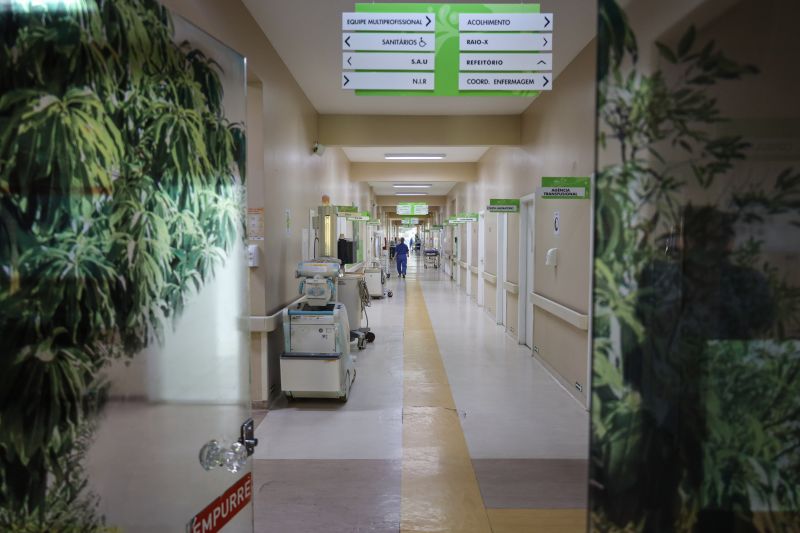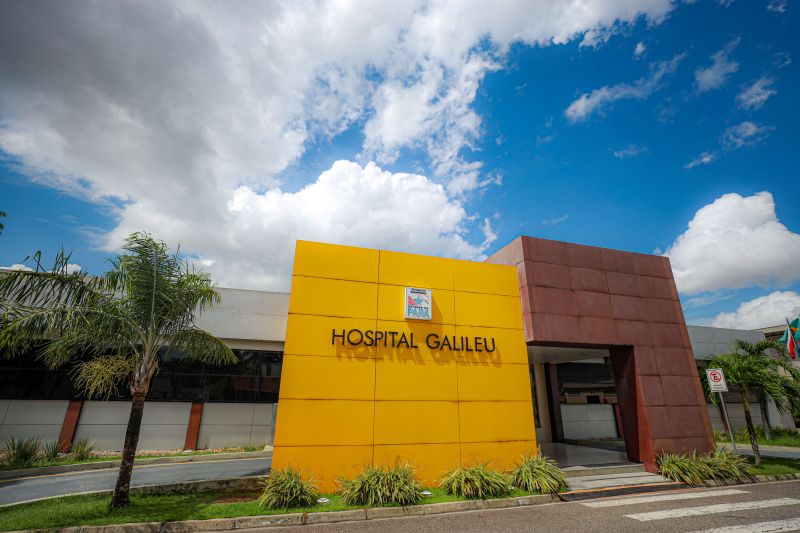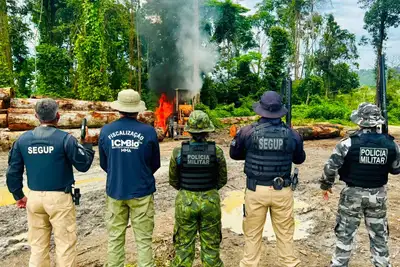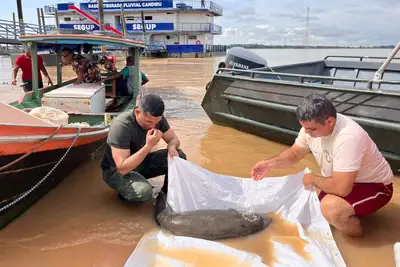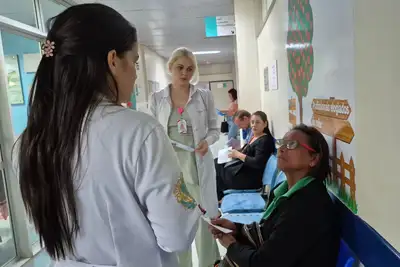At Hospital Galileu, physiotherapy is an ally in preventing postoperative complications
Physiotherapists work from the moment the patient enters the unit until hospital discharge
The surgical recovery process goes far beyond hospital treatment. Proper rehabilitation can be crucial for the success of the procedure, preventing common postoperative complications such as deep vein thrombosis (DVT), muscle atrophy, and even respiratory problems. In this scenario, physiotherapy plays an essential and often decisive role in healing.
At the Galileu Public State Hospital (HPEG), in Greater Belém, a reference from the State Government in orthopedic trauma, the physiotherapy service is an ally in treating patients from the moment they enter the unit until the postoperative period. Physiotherapist Amanda Corrêa is part of the team responsible for monitoring users and explains the role of physiotherapy in preventing postoperative complications such as Deep Vein Thrombosis (DVT) and muscle atrophy.
"In the case of DVT, for example, physiotherapy, along with medication, improves systemic blood circulation. For muscle atrophy, we work with strengthening exercises and stimulate the recovery of muscle mass," says Amanda Corrêa.
Exercises that save physical and motor functions
In the postoperative period, care is gradual. Physiotherapy begins with light movements, called assisted active exercises, in which the physiotherapist helps the patient, mainly to overcome fear and pain.
"Then we move on to a more active phase, focusing on strength gain and functional independence. We use equipment such as cycle ergometers, elastic bands, dumbbells, and encourage active exercises," details physiotherapist Amanda Corrêa.
The ideal time to start physiotherapy varies depending on the type of procedure. In some cases, rehabilitation begins on the first day after surgery. In others, it is necessary to wait 15 to 30 days to ensure the consolidation of the procedure.
In addition to mobility, physiotherapy is crucial in recovering lung function, especially after prolonged surgeries or those requiring absolute rest.
"We work with breathing exercises combined with physical movements. Simple activities, such as sitting on the edge of the bed and walking, already help improve lung capacity," says Amanda.
Continuous rehabilitation
After hospital discharge, follow-up should not be interrupted. Amanda emphasizes that patients receive guidance to continue treatment at home and are encouraged to seek outpatient physiotherapy.
"We guide exercises that can be done at home and reinforce the importance of continuing treatment outside the hospital environment," she adds.
Unique and individualized plan
To ensure that treatment is effective, an individualized assessment is conducted. The team considers how the patient arrived at the hospital, their previous functional history, type of surgery, and current degree of limitation. "Each case is unique. Based on this analysis, we develop a personalized plan that respects the limits and goals of the patient," she says.
At 59 years old, retiree Antônio Batista Lima is one of the HPEG patients who recognize the importance of physiotherapy in the recovery process. In March of this year, he suffered a motorcycle accident that resulted in a fracture of the left proximal humerus. He will undergo shoulder arthroplasty.
"Since I arrived, I have been doing physiotherapy every day with the help of the girls. At first, my arm couldn't move at all, but now I can already see improvement. I know I wouldn't have progressed without this work. And I know that after the surgery, I will need to continue," evaluates Antônio.
The professional also warns: surgery is only part of the treatment. "Rehabilitation goes hand in hand with the surgical procedure. The patient needs to correctly follow the physiotherapeutic guidelines for recovery to be complete and for them to regain their functionality in daily life," she concludes.
Access to Galileu
The Galileu Hospital is a unit belonging to the Government of Pará, managed by the Institute of Social and Environmental Health of the Amazon (ISSAA), in partnership with the State Department of Public Health (Sespa). To access the unit, the patient needs to be referred through State Regulation; therefore, the services are not walk-in.


